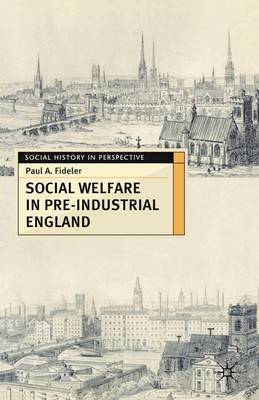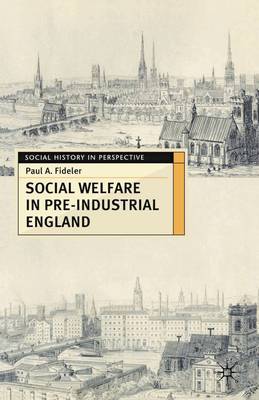
- Afhalen na 1 uur in een winkel met voorraad
- Gratis thuislevering in België vanaf € 30
- Ruim aanbod met 7 miljoen producten
- Afhalen na 1 uur in een winkel met voorraad
- Gratis thuislevering in België vanaf € 30
- Ruim aanbod met 7 miljoen producten
Zoeken
€ 40,95
+ 81 punten
Omschrijving
Paul A. Fideler crosses period boundaries to establish the five-centuries-long symbiosis between the pre-industrial market economy and parish-centered social welfare, institutionalized in the Elizabethan Poor Law. Utilizing recent work in economic, social, demographic, political, medical and welfare history and attending to developments in religion, ethics, and political thought, he highlights the unique assumptions, perceptions and repertoire of relief initiatives that sustained the Elizabethan social welfare tradition until its demise in the early decades of industrialization.
Specificaties
Betrokkenen
- Auteur(s):
- Uitgeverij:
Inhoud
- Aantal bladzijden:
- 272
- Taal:
- Engels
- Reeks:
- Reeksnummer:
- nr. 43
Eigenschappen
- Productcode (EAN):
- 9780333688953
- Verschijningsdatum:
- 17/03/2006
- Uitvoering:
- Paperback
- Formaat:
- Trade paperback (VS)
- Afmetingen:
- 140 mm x 216 mm
- Gewicht:
- 335 g

Alleen bij Standaard Boekhandel
+ 81 punten op je klantenkaart van Standaard Boekhandel
Beoordelingen
We publiceren alleen reviews die voldoen aan de voorwaarden voor reviews. Bekijk onze voorwaarden voor reviews.








